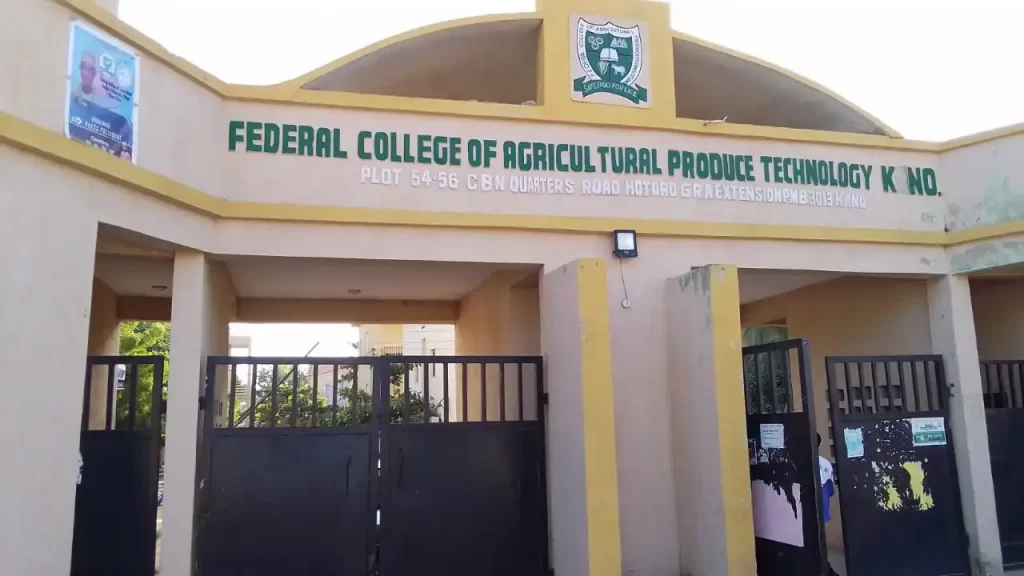As part of its contribution to tackling the menace of unemployment in the country, the Federal College of Agricultural Produce Technology (FCAPT), has trained 50 Women on Fruit Juice Processing, by processing raw tomatoes, tomato paste, tomato jam, and tomapeppe, and post-harvest storage techniques of the tomato.
The Provost of the College Dr. Muhammad Yusha’u Gwaram, during the closing ceremony of the training, expressed readiness to fight youth unemployment presently ravaging most societies.
Dr. Gwaram said entrepreneurship skills has been acknowledged all over the world as the surest way for massive job creation.
He said the best way to go now is to encourage women and youths to develop entrepreneurship skills related to Agriculture, disclosing that FCAPT had commenced the process that would lead to massive employment creation in Nigeria soon.
Read Also:
KANO: FCAPT Trains Farmers, Stakeholders on Farmers Financial Cycle
“It has been my dream since I became the Provost of this great college, to train at least 50,000 youths on Agricultural value chains, skills especially those that are related to our mandate given to us, that is post-harvest technology, and currently I achieve over 70% of my target with over 32,000 youth that benefited from our training programme in any part of Nigeria who are still practicing what they have learned,” Dr. Gwaram.
The Provost of FCAPT further said these skills will surely boost wealth creation and address the problem of food scarcity in our communities.
“He said: ‘I am pleased to inform you that the Federal College of Agricultural Produce Technology (FCAPT) is working assiduously, deploying its technologies to assist in home industrialization, and rural industrialization using our local raw materials.
You can see that this training will go a long way in impacting our society, by providing locally made tomato fruit juice that is of nutritional value to our health,” FCAPT Provost.
Speaking earlier, the Managing Director of Kano State Agricultural and Rural Development Authority (KNARDA), Dr. Farouk Ahmad Kurawa said the state government will support this idea in other parts of the state, as it is the only way to empower the youth and address unemployment.
Dr. Kurawa, represented by the Director of Planning, Monitoring, and Evaluation of KNARDA, added that the training programme is what their agency, through its unit of ‘Family Nutrition and Income Generation, will continue to partner with the relevant institutions in achieving the aim.
The training officer of the institute, who is the Chief Technologist of FCAPT Kano, Abdul Jibrin, disclosed that the participants were taught modern fruit processing and production techniques, adding that the economic aspect of the idea will attract many other processors into business, and be a source of earning a living for many women in society.
He highlighted that the training will help eliminate waste on the farm by preserving the product at its availability stage and equipping other farmers with the tools to boost their production capacity and value chain.
Salma Iliyasu from Sharada ward in Kano Municipal, a beneficiary of the training programme, expressed her delight and commitment to putting into practice the knowledge gained during the training.
FCAPT Releases First Batch for 2023/2024 Session
Reacting to the gesture, the Ward Head of Sharada Community, Malam Iliyasu Muhammad Sharada urged the beneficiaries to fully utilize the training in their areas, noting that there is need for politicians and other stakeholders to emulate FCAPT in training youth on different agricultural value chains, which he said if sustained would build Nigeria’ towards food sufficiency.
The beneficiaries were drawn from several communities across the state, to address the critical issue of women’s unemployment by exposing them to various technology-based entrepreneurial opportunities and allowing the trainees to be their bosses through enterprise creation and development, in addition, to control post-harvest losses through value addition.
Participants who were trained were empowered with blenders and starter cash to enable them to process and preserve their tomato products and other fruits for economic value.
